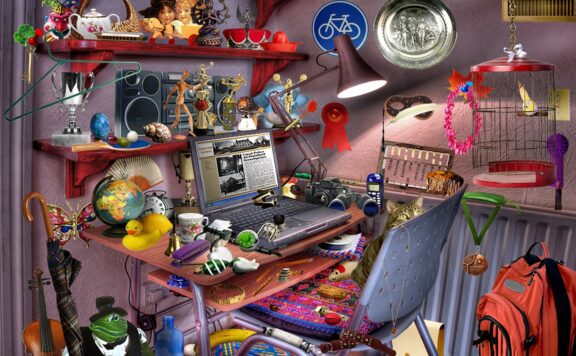Are you sick of having your gaming experience hampered by slow games? With these hardware-enhancing tricks, bid adieu to annoying delays and hello to fluid gameplay! Optimizing your system can have a significant impact on your gaming experience, regardless of your level of skill.
The Impact of Hardware on Gaming Performance
Hardware is pivotal for optimal gaming performance, encompassing the physical components like the processor, graphics card, memory, and storage. The central processing unit (CPU) is vital, managing calculations for tasks like graphics rendering and AI processes. A high-performance CPU with multiple cores enhances data processing speed.
The graphics card (GPU) is crucial for visuals; a powerful GPU ensures smooth gameplay, improved frame rates, and better visual effects. RAM or memory is essential for quick data access, preventing lag with a recommended minimum of 8GB. Storage devices, HDDs, or SSDs impact loading times; SSDs offer faster access to game assets. Quality peripherals like a gaming mouse, responsive keyboard, and immersive headset enhance the gaming experience, especially for competitive or fast-paced gameplay. If you’re considering taking advantage of a Pulsz bonus code and your computer lags, investing in these peripherals can still significantly improve your gaming experience.
Upgrading hardware components or peripherals can significantly improve overall gaming, providing smoother gameplay, enhanced visuals, and quicker loading times. If lag and stuttering frustrate you during gaming, consider a hardware upgrade.
Understanding Internet Connection and Its Role in Gaming
A reliable internet connection is essential for seamless gaming, as it facilitates data transmission between your device and the game server. Latency, the delay in data transmission, impacts gameplay with lags and freezes. Lower latency ensures smoother gameplay. Bandwidth, the amount of data transmitted per second, influences loading times; a higher bandwidth results in faster performance. Internet connection types, like DSL, vary in latency and bandwidth. Quality hardware, such as a high-speed router with QoS settings, prioritizes gaming traffic for uninterrupted gameplay. Upgrading to fiber-optic connections enhances stability, speed, and reliability. Investing in proper hardware improves internet connectivity, translating to an enhanced gaming experience with reduced latency and faster performance.
Upgrading Your Router: Tips and Tricks
Gaming requires a steady and fast internet connection, and while router upgrades are sometimes disregarded, they can have a big effect on performance. Take into account these pointers for a better gaming experience:
- Know your speed needs: Determine required speeds based on game type and connected devices. Generally, a minimum download speed of 25 Mbps is recommended for online gaming.
- Consider the connection type: Wired (ethernet) or wireless (Wi-Fi) connections. Ethernet offers a more stable and faster connection, especially for gaming.
- Opt for dual-band technology: Dual-band routers reduce interference by using 2.4GHz and 5GHz frequencies. It provides smoother gameplay by minimizing interference from other devices.
- Utilize advanced features: Look for features like Quality of Service (QoS) and beamforming. QoS prioritizes gaming traffic, while beamforming strengthens Wi-Fi signals.
- Invest in a gaming router: Dedicated gaming routers offer gamer-focused interfaces and low-latency modes. Features like dual-core processors enhance data processing for improved performance.
Consider variables like internet speed, connection type, and advanced features to reduce latency and increase enjoyment. Upgrade your router immediately to avoid having your gameplay hampered by antiquated hardware!

Optimizing Your PC/Mac for Gaming
Optimizing key components is crucial for an optimal gaming experience on your PC or Mac due to increasing hardware demands. Start with the CPU, favoring a multicore processor with high clock speed, like Intel Core i5 or i7. With 8GB as the minimum and 16GB for better results, RAM acts as temporary storage. Optimize storage using a solid-state drive (SSD) for faster load times. Keep your graphics card updated to handle graphics-intensive games. Regularly clean out dust to prevent overheating, and consider upgrading the cooling system for consistent performance. With attention to these components and maintenance, you can bid farewell to lag and enjoy a smoother gaming experience.
Alternatives to Upgrading Hardware
Improving gaming performance doesn’t always require costly hardware upgrades. For those with budget constraints or limited technical expertise, consider these alternatives:
- Optimize game settings: Adjust graphics settings like shadows and anti-aliasing for improved frame rates without significant visual sacrifice.
- Clean up your system: Regularly remove unused programs and delete temporary files to free up valuable resources, enhancing overall efficiency.
- Manage background processes: Close unnecessary applications before gaming to prevent additional processes from consuming valuable resources and causing lag.
- Use game booster software: Explore tools like Razer Cortex Game Booster or Wise Game Booster to temporarily free up RAM and optimize CPU usage for smoother gameplay.
- Invest in cooling solutions: Control heat, a major performance hindrance, by investing in additional fans or liquid cooling systems to improve overall system performance.
While hardware upgrades are effective, optimizing settings, system cleanup, background process management, game boosters, and cooling solutions offer cost-effective ways to enhance gaming experiences. Experiment with these alternatives to achieve smoother gameplay without a hefty financial investment.
Finding the Right Balance for a Lag-Free Gaming Experience
Achieving a lag-free gaming experience involves balancing hardware upgrades and software optimizations. Upgrade key components wisely, considering your budget and needs. Regular cleaning and maintenance prevent performance bottlenecks. Optimize in-game settings for better performance without compromising visuals. Use tools like game boosters to maximize resources. Prioritize a stable wired internet connection for reduced lag. Quality routers and adapters contribute to lower latency. Keep drivers and games updated for performance improvements. Achieving a seamless gaming experience may take effort, but you’ll significantly enhance your gameplay with a balanced approach.







